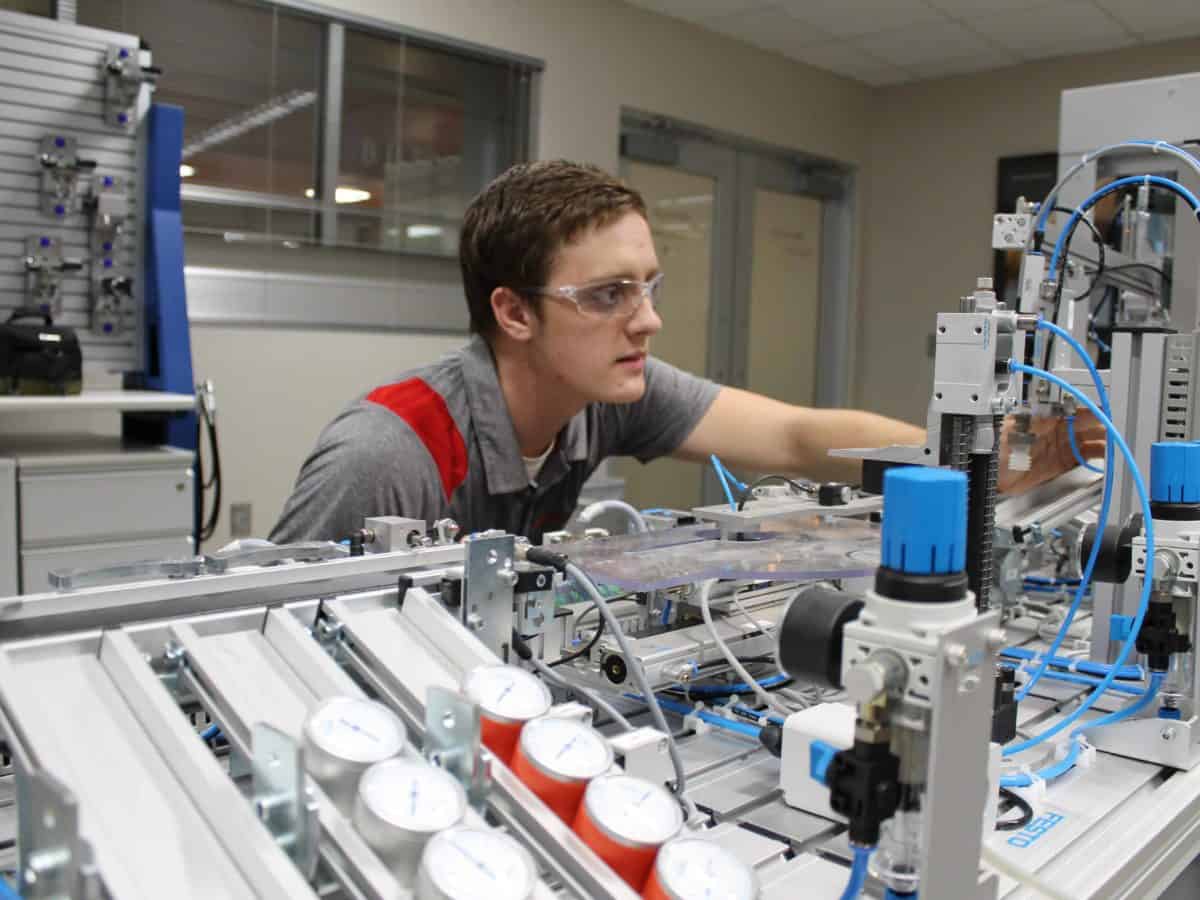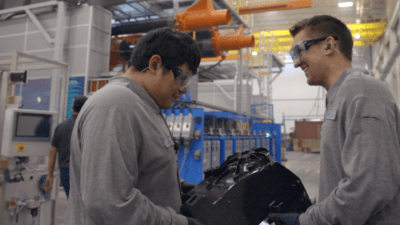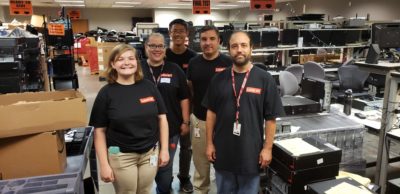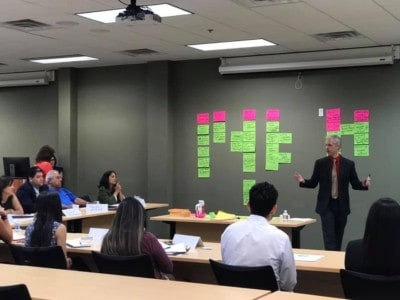

In the fall of 2019, several statewide initiatives were progressing rapidly toward goals intended to help North Carolina citizens attain skills and credentials valued and needed by the state’s employers.
The initiatives included the myFutureNC education attainment goal, the Credentials of Value Institute, North Carolina (NC) Career Launch (Work-based learning expansion), and NCCareers.org. Several members of the teams pushing these initiatives met at a National Governor’s Association Policy Academy for Work-based Learning in San Diego in late February just as the pandemic was gaining speed in the United States. While attending the conference, the North Carolina team discussed the news of the contagious disease and its potential for disruption, but not one team member expected the grim reality of more than 94,000 dead in the United States.
2019 was a banner year for workforce-related initiatives. The myFutureNC organization kicked off its effort to help the state achieve 2 million credentialed citizens by 2030. The North Carolina Business Committee for Education, building off the success of the National Governor’s Association Policy Academy for Work-based Learning, began generating buzz for the state’s work-based learning brand, NC Career Launch. A team of representatives from education and workforce development convened on the Credentials of Value Institute to begin work identifying credentials valued by employers. Additionally, 2019 saw great progress on a partnership across higher education, public education, and economic development to create a single online portal for all career information in the state, NCCareers.org.
COVID-19’s impact on initiatives
As productive as 2019 appeared to be, 2020 had the promise to be even better as each of the state’s initiatives anticipated delivering specific outcomes during the year. So, how has the pandemic altered strategies, goals, and objectives? MyFutureNC’s strategic plan, for example, centers around three primary objectives: (1) a shared vision for attainment in North Carolina, (2) postsecondary readiness, access, and completion, and (3) education and labor market alignment. The organization’s strategies for achieving these goals include keeping the public and partners engaged and driving awareness, creating the space for education and workforce sector leaders to collaborate on high-impact strategies, supporting innovation at the local level, and facilitating the adoption of evidence-based policies and practices to drive attainment efforts.
While myFutureNC’s strategies remain largely the same, the organization’s president, Cecilia Holden, recognizes that there may be some shift in priorities as a result of the pandemic. One area Holden feels may be prioritized due to the challenging economic situation created by COVID-19 is North Carolina’s success around FAFSA completions. Specifically, myFutureNC aims to increase the number of school districts and charters signed up with the “FINISH the FAFSA” project, so that school counselors and other college access professionals can monitor FAFSA completion status through a secure database. This will assist students whose parents have lost their jobs due to the pandemic, encouraging completion of FAFSA and insuring appropriate financial aid is awarded.
It’s no surprise that leaders of the other state initiatives are also blazing forward with their efforts in the midst of the pandemic. Caroline Sullivan, executive director of the NC Business Committee for Education, stresses the importance of aligning all the state’s work-based learning efforts in anticipation of the workforce needs as the state’s economy bounces back from the damage caused by the pandemic. Regional Work-based Learning Networks, a key component of the brand, NC Career Launch, have been impacted by the pandemic due to being unable to conduct the necessary in-person meetings needed to inform stakeholders and businesses of the effort. However, Sullivan’s team is partnering with the team working on Credentials of Value to engage business and industry through remote sessions, and these virtual engagements will also serve as a vehicle to communicate information on the Regional Work-based Learning Networks.
Jeni Corn, myFutureNC’s director of strategic initiatives and one of the leaders of the Credentials of Value effort, is involved in nearly every effort currently progressing in the state. She reiterated Sullivan’s sentiment regarding not letting the pandemic slow the Credentials of Value initiative from achieving its goals. In addition to adjusting some of the timelines, format, and target participants for upcoming business and industry feedback sessions to online, the effort is shifting focus from long-term planning to specific summer sessions in response to current attention on immediate needs and less on long-term planning.
The greatest impact COVID-19 has had on NCCareers.org development thus far is planned beta testing and rollout of the site, reported Jeff Debellis, director of economic and policy analysis with NC Department of Commerce and leader of the career portal effort. Debellis said he was hoping to have more direct access to potential end-users (students, job seekers) for the site’s beta test. Due to the disruption, giving users access in a controlled environment, as opposed to sending them a link to the site that can be shared widely, is no longer possible in many instances. Instead, the development team is working on alternatives for getting feedback from testers.
Another challenge presented by COVID-19 is the impact on the site’s launch timeline. The effort’s team was hoping to market the site through the network of partners at various planned conferences, trainings, and events – the status of those is currently uncertain.
Initiatives and an economy in decline
The leaders of the initiatives agree that the state is in a steep economic decline and may not fully recover for several years. Because of this rapid recession, Holden believes the state’s education goal will now be more important for the future than when it was conceived. Individuals without a high-quality credential or a postsecondary degree will be disproportionately impacted by the economic decline. Already, two-thirds of jobs in North Carolina require a high-quality credential or postsecondary degree, yet half of North Carolinians (ages 25-44) have attained one. The myFutureNC organization views educational attainment as a recovery strategy for the economy, and alignment of North Carolina’s educational attainment efforts with its industry needs will be a critical element.
In general, jobs that require higher levels of education are more readily transferable to a work-from-home environment. This is true across occupations and is reflected in those that have higher concentrations of workers with more education. The clearest disparity that has been highlighted is the stark split between white-collar and blue-collar occupations. White-collar jobs tend to be more transferable to allow a work-from-home arrangement, whereas blue-collar jobs are more likely to require face-to-face interaction, making work conditions challenging in these social-distancing times. In addition, blue-collar workers tend to have a high school education or less, making them particularly vulnerable in this tumultuous economy.
Sullivan agrees that the state’s workforce-related initiatives will be even more critical as the economy attempts to bounce back from the pandemic. She is confident the work-based learning programs included in NC Career Launch will provide essential learning and experience for students who need to earn while satisfying employers’ needs for skilled workers. She expects that students and families will need to make strategic decisions on their education pathways, and robust work-based learning is critical to helping them make informed decisions.
“Young people have got to understand what career paths are available and growing,” Sullivan said. She also stressed that employability skills will be more important as the competition for jobs becomes more fierce. “The more the state can leverage the community college system’s Career and College Promise to save on higher education, the better for families, so the state should expect that programs like youth apprenticeships will grow into popular options for students,” she said.
Debellis believes that career exploration is important to anyone thinking or planning their occupational, educational, and economic futures, regardless of the current environment, and NCCareers.org was initiated with this in mind. However, he emphasized the fact that people are naturally more concerned about their future during periods of high uncertainty, such as the current situation. As such, Debellis expects greater interest and utilization of NCCareers.org while the state is in a recession or struggling to fully rebound. The site can be particularly helpful to those who are looking to start their career or transition to another occupation, and to those who need additional education that can lead to positive long-term job prospects.
Debellis’ assertion about individuals seeking new educational opportunities for economic gain is echoed by Corn, who points out that data from the previous recession shows that individuals who possess high-quality postsecondary credentials recover from economic recession sooner than those who do not. It is even more critical that, through the Credentials of Value effort, our state identify and prioritize credentials that provide the greatest labor market value through the COVID-19 crisis and beyond. Corn further expressed the need for leaders at the state and local level to drive and focus education attainment for all as a bold economic recovery strategy. There is great need to elevate employer input on the skills and credentials they see as critical to recovery, and then invest in them using real-time labor market data.
Sullivan added the importance of addressing how to get through today and build for tomorrow. The disruption and change the state is experiencing in education and workforce is unlike any time in our state’s history. She believes that the work-based learning and NC Career Launch efforts will be integral parts of molding the education and workforce systems of the future.
Holden took a positive stance when expounding on the future of the state. She mentioned a common theme she has heard during times of great economic decline: “We are at our best with respect to innovation. The fundamental challenges that existed in education and workforce alignment prior to the pandemic have only been magnified. As a result, a brighter light shines on issues such as broadband access. We are optimistic about the future of North Carolina and the innovation that will come with it. Do not waste a good crisis – with it comes great opportunity.”
Special thanks to the leaders of NC’s workforce initiatives, Caroline Sullivan, Cecilia Holden, Jeni Corn, and Jeff Debellis, for their efforts and providing input to the author.




